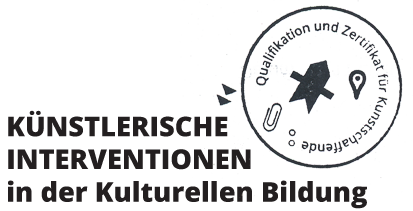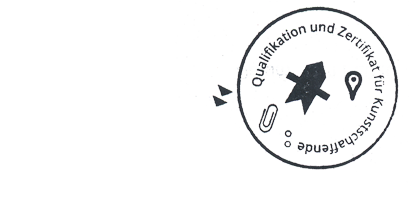


Verena Melgarejo-Weinandt – Centering Artistic Mediation from a curatorial point of view: “Gloria E. Anzaldúa as method in decolonial art, art education and politics”
In my participative lecture I would like to present my educational work around the work of the decolonial and feminist pioneer Gloria E. Anzaldúa* and specifically her book „Borderlands/ La Frontera: The New Mestiza“ which I am translating together with the translation collective Chaka into German. Over the span of the last 7 years I was able to expand this translation practice into several formats, but the educational work with many other artists has been a major focus of this process and many workshops have been a site of Un/learing with and through Anzaldúas Methodology of Knowledge Production. I would like to present and discuss several concrete examples of these workshops and exchange on our knowledge/ experiences of un/learning though artistic practices following these questions:
Why is artistic educational (translation) work around Anzaldúa politically and spiritually relevant and necessary? How have marginalised voices and positions received Anzaldúa and fought for her dissemination in the German-speaking countries? Anzaldúa‘s knowledge production is based on knowledge that is based on lived experience, that arises in and from the chicana community, knowledge that is not institutionally anchored. What knowledge can be visible and localized locally with the help of Anzaldúa’s “tools”? How can we build bridges from Anzaldúa to other knowledge and positions?
*GLORIA E. ANZALDÚA (1942 – 2004) was a self-proclaimed “Chicana, tejana, from the working class, dyke-feminist poet, author-theorist”. Her book Borderlands/La Frontera shifts and complicates the concept of what is considered a border. Based on the history of the Mexican-American border, a geographical definition is expanded and presented not only as a violent but also as a potentially transforming space within which opposites, differences and paradoxes coexist, collide and enable change. Her work inspires artists, authors, researchers and activists through many generations. Her groundbreaking work is an important reference for people working with decolonial feminism(s), intersectional Queer Theory and Movements and indigenous Spirituality. Anzaldúa is one of the most important voices of the Chicanx Movement in the USA.